EVENT
FNF at RightsCon 2025: Our Accomplishments on Innovation and Empowerment
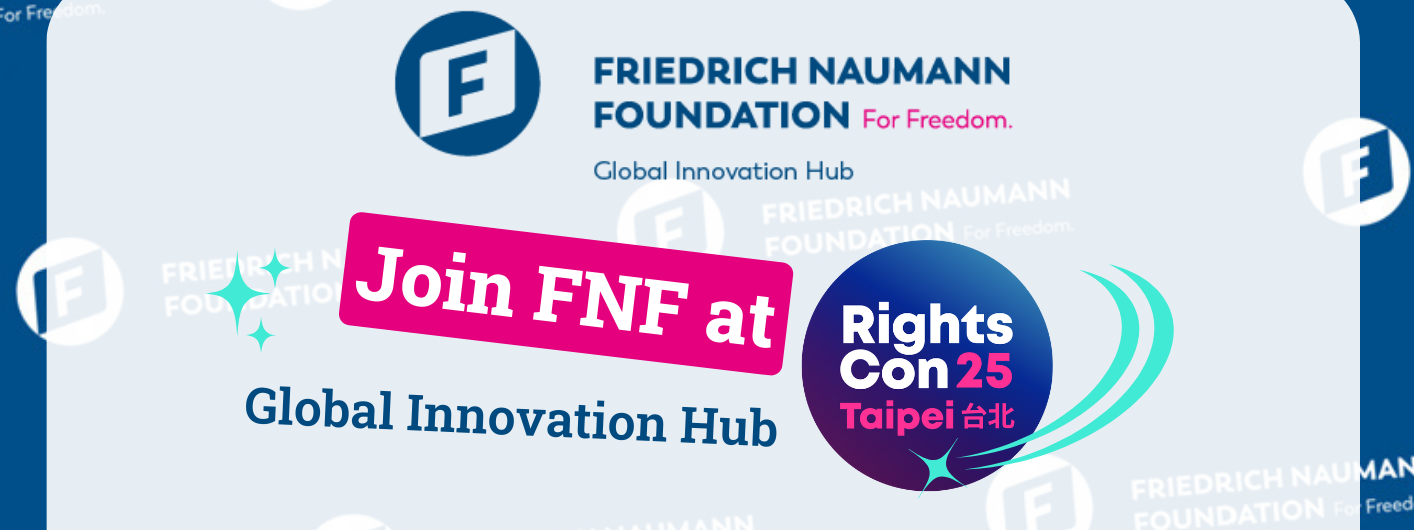
In February 2025, RightsCon—the world’s leading summit on human rights in the digital age—held its 13th global convening in East Asia for the very first time, in vibrant Taipei, Taiwan. At the heart of this global gathering, the Friedrich Naumann Foundation for Freedom (FNF) Global Innovation Hub was proud to be an official partner, helping bring urgent issues of digital rights to the forefront. Through thought-provoking programming and meaningful collaborations, we elevated the voices of underrepresented communities, supported youth leaders, and championed digital freedom and democracy in Asia and beyond.
Panel Discussion :Combating Gendered Disinformation as a Threat to Democracy
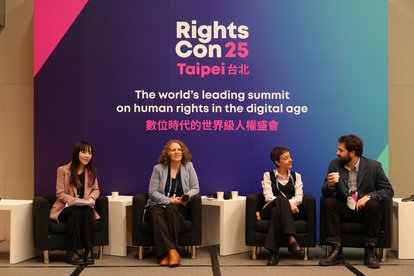
Disinformation campaigns have long been a tool of political influence, yet their gendered nature—especially in the digital space—often goes unnoticed. During the summit, FNF hosted a timely and impactful panel titled "Gender-Based Political Campaigns Targeting Politicians and Leaders: A Neglected Risk to Democracy." The discussion brought together an international lineup of experts including Taiwanese legislator Jie Huang, legal researcher Alessandro Polidoro from CyberLove, and Lucina Di Meco, founder of ShePersisted. Moderated by Anna Marti, Head of FNF’s Global Innovation Hub, the panel explored the impact of gender-based disinformation on democratic processes.
During election years, targeted disinformation campaigns intensify, aiming to manipulate public perception of female politicians and LGBTQ+ leaders. Jie Huang, who has been personally affected by such attacks spoke candidly about the use of fake news, sexualized images, and distorted narratives designed to discredit female and queer leaders. These attacks not only threaten individuals but also undermine public trust, discourage political participation, and ultimately harm democratic institutions.
Lucina Di Meco, founder of ShePersisted, highlighted that these attacks are not random but systematically used to shape political structures. Victims are systematically pushed out of public discourse not just through threats and hate speech but via carefully spread falsehoods that erode their credibility and political standing. "The problem isn’t just the sexist or misogynist next door," she explained. "It’s a systemic issue." Right-wing and populist parties, in particular, weaponized gender-based narratives to mobilize voters. By reinforcing traditional gender roles and discrediting women in leadership, they actively manipulate political landscapes. Echoing this, Alessandro Polidoro highlighted the legal and regulatory gaps in tackling such gendered digital violence, stressing the need for international cooperation.
The conversation shed light on how disinformation campaigns disproportionately target women and LGBTQ+ political figures. Disinformation is not gender-neutral and even extends beyond the digital space. A study by HateAid reveals that half of all women in politics also face offline sexual harassment and gender-based hostility. When weaponized against specific identities, it becomes a tool of exclusion and suppression. Liberals must recognize and respond to this threat with urgency and care.
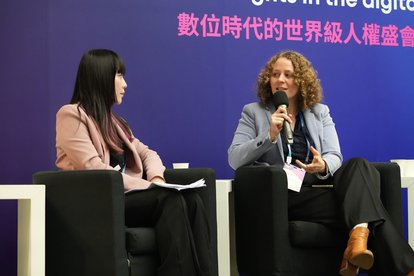
Immersive Exhibition: Walking in Their Shoes through Digital Gender-based Violence
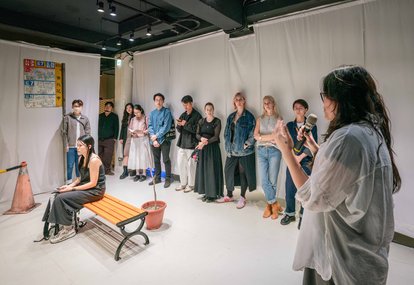
Aiming to further raise public awareness and inspire collective action for change, alongside the panel discussion about gender disinformation, FNF presented exhibition “They told me it's not your fault. And I told them everything will be fine.“ created by Taiwanese artist Ting-Ting Cheng and held at the Taiwan Contemporary Culture Lab (C-LAB) as an official side event of RightsCon25. The artistic work explored the challenging realities of tech-facilitated gender-based violence (TFGBV), a growing crisis threatens democracy by silencing women and marginalized communities whose voices are essential to a free and open society.
With over 500 visitors from around the world, the exhibition was a powerful success. Guests left behind heartfelt messages, reflections, and commitments to action. It was widely praised for bridging the emotional and political dimensions of digital harm, and for offering an innovative approach to human rights initiative. By bringing TFGBV to the RightsCon25 stage, FNF created a space for a global conversation about bodies, gender, sexuality, and human rights in the digital age while expanding these discussions to to a broader international audience.
Young Leaders Summit: Empowering Youth Engagement
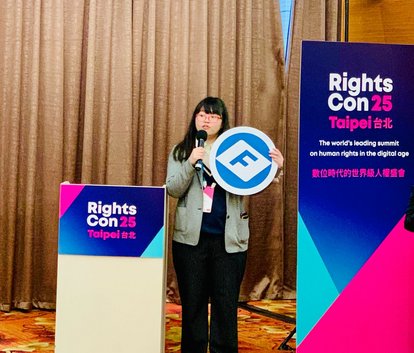
Beyond addressing digital threats and violence, FNF’s involvement at RightsCon25 extended to empowering the next generation of digital rights defenders through support for the 5th Young Leaders Summit, co-hosted with local partner Better Taiwan Together. This full-day satellite event welcomed nearly 70 youth participants aged 18 to 30 from over 30 countries across the world.
The summit provided a platform for young leaders to exchange ideas, explore challenges, and co-create solutions on issues at the intersection of technology and human rights such as disinformation campaigns, AI-driven narrative manipulation, and strategies for strengthening digital rights advocacy.
Supporting the summit reflects our commitment to cultivating resilient digital ecosystems by investing in young changemakers. Many participants are already active in advocacy, journalism, civic tech, and community organizing. This opportunity allowed them to connect, learn, and build lasting international networks, laying the groundwork for a more just digital future.
Conclusion: Connecting to the Global Digital Rights Ecosystem in A Changing World
Throughout the four-day summit, RightsCon 25 brought together more than 3,000 participants from over 150 countries, featuring over 600 sessions ranging from open talks and private meetups to community booths and unofficial gatherings. All of these sent a powerful message in response to the rise of anti-diversity rhetoric and growing threats to fundamental rights.
Also, hosting the summit in Taipei was a milestone for Taiwan, which demonstrated once again its role as a beacon of democracy in the Asia-Pacific region committed to advancing open societies, civil liberties, and democratic resilience in the digital age.
For FNF Global Innovation Hub, participating in RightsCon25 reaffirmed our commitment to digital rights, democratic resilience, and freedom of expression. Through expert dialogue, artistic engagement, and youth empowerment, we contributed to shaping more inclusive, rights-respecting digital spaces. By fostering dialogue, collaboration, and shared learning, we strived to address that an open internet, a vibrant civil society, and transparent governance are essential for societies to shape a freer and more innovative future.

